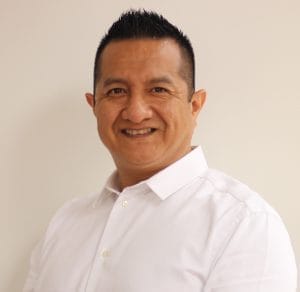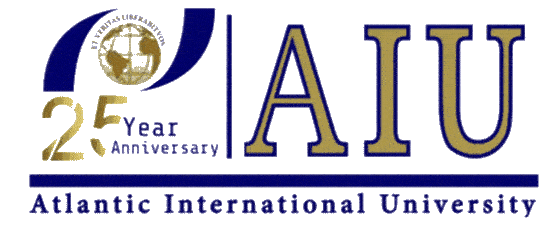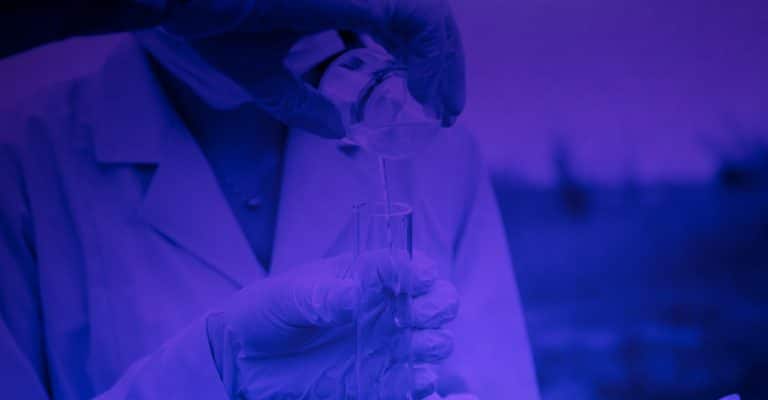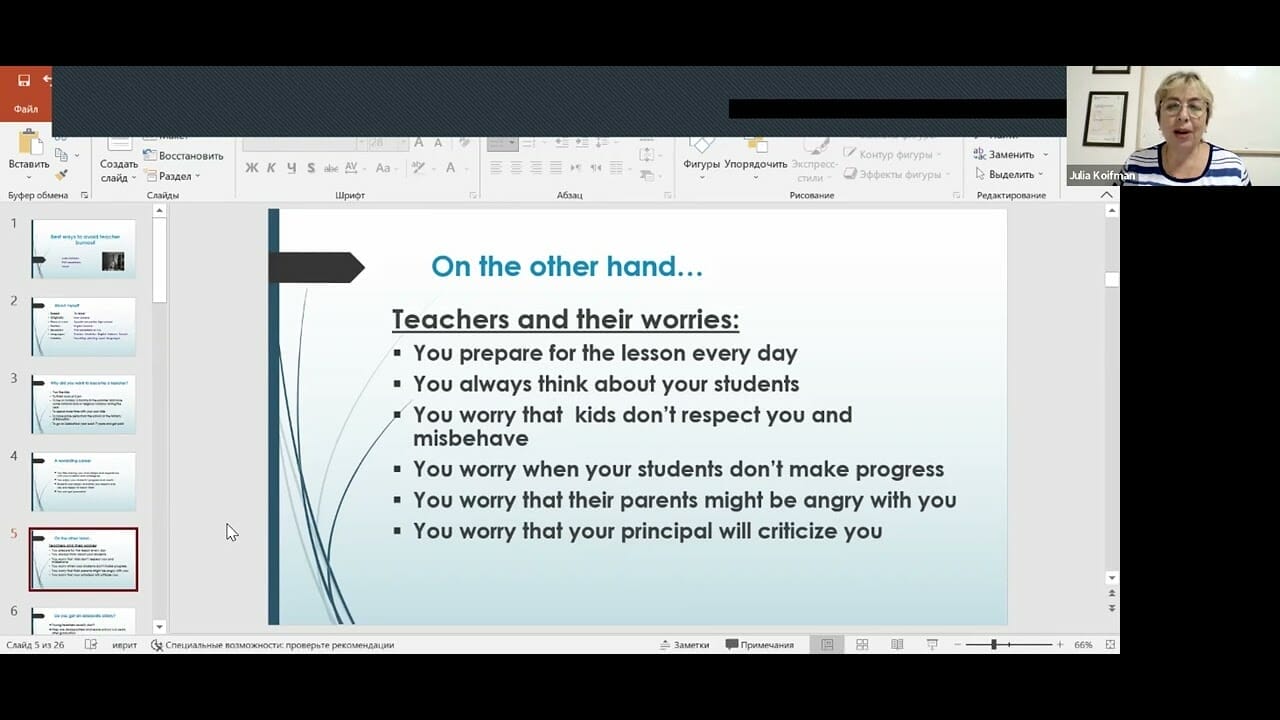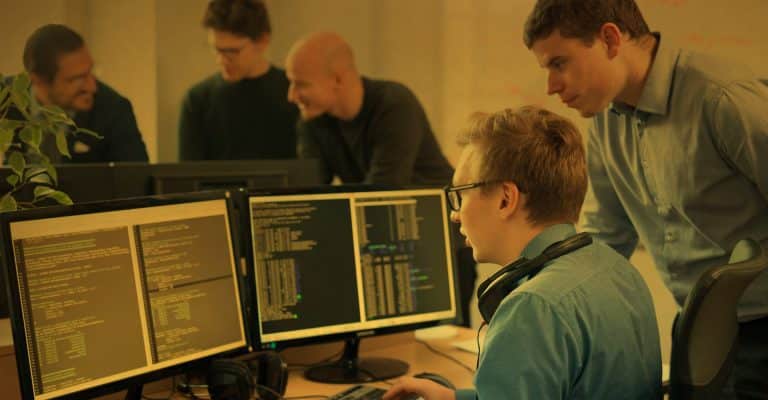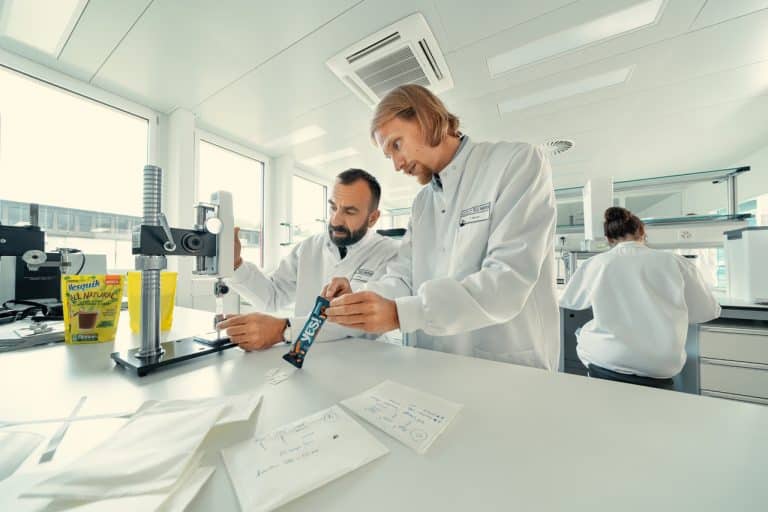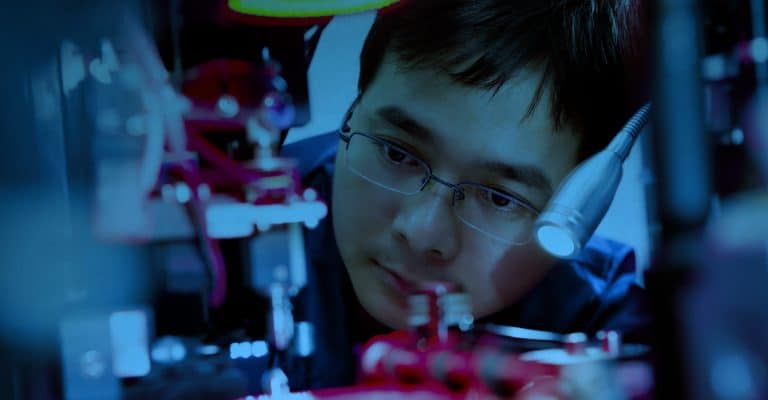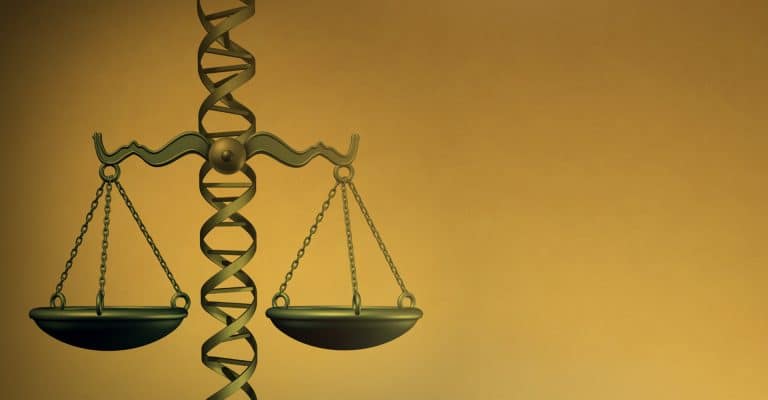- RESEARCHDistance Learning at AIU is enhanced by vast academic resources and innovative technologies build into the Virtual Campus: Hundreds of self-paced courses with video lectures and step by step lessons, thousands of optional assignments, 140,000 e-books, the Social Media & Networking platform allowing collaboration/chat/communications between students, and MYAIU develop students holistically in 11 areas beyond just academics.
- PROGRAMS OFFERED
- Areas of Study
- Courses and Curriculum
- Open Courses
- Register for a Program
- Certificate Program
-
Associate program
- Associate in Actuarial Science
- Associate in Addiction Counseling
- Associate in Agriculture Food And Resources
- Associate in Animal Science
- Associate in Anti Terrorism Security
- Associate in Behavior Analysis In Special Education
- Associate in Bioethics
- Associate in Biosystems
- Associate in Blockchain Technology & Digital Currency
- Associate in Business Communication
- Associate in Business Management
- Associate in Chemistry
- Associate in Climatology
- Associate in Cloud Computing
- Associate in Computer Engineering
- Associate in Computer Programming
- Associate in Computer Science
- Associate in Criminal Justice
- Associate in Culinary Arts
- Associate in Cultural Theological Communication
- Associate in Cybersecurity And Hacking
- Associate in Data Communication And Networking
- Associate in Database Administrator
- Associate in Early Childhood Education
- Associate in Ecotechnology
- Associate in Ecotourism
- Associate in Education
- Associate in Educational Technology
- Associate in Electric Vehicle Engineering
- Associate in Electrochemical Engineering
- Associate in Electronic Engineering
- Associate in English Literature
- Associate in Environmental Science
- Associate in eVTOL Engineering
- Associate in Fashion Design
- Associate in Fine Arts
- Associate in Foreign Trade
- Associate in Genetic Engineering
- Associate in Geography
- Associate in Geology
- Associate in Geophysical Sciences
- Associate in Graphic Design
- Associate in Health Sciences
- Associate in History
- Associate in Human Resources
- Associate in Integrated Water Management
- Associate in International Finance
- Associate in International Marketing
- Associate in Islamic Studies
- Associate in Kinesiology And Physiotherapy
- Associate in Library technology
- Associate in Linguistics
- Associate in Management
- Associate in Management Information Systems
- Associate in Maritime Management
- Associate in Metallurgy
- Associate in Micro and Multimode Grid Design
- Associate in Modern Power and Energy Systems
- Associate in Multimedia Design and Digital Art
- Associate in Nutrition
- Associate in Oil Gas And Energy Engineering
- Associate in Operations Management
- Associate in Optoelectronic Systems
- Associate in Organizational Development
- Associate in Organizational Diversity
- Associate in Pedagogical Training For Professionals
- Associate in Physical Culture And Sports
- Associate in Physics
- Associate in Public Health
- Associate in Quantum Computing Technology
- Associate in Radio And Television Production
- Associate in Scenography
- Associate in Social Media Marketing
- Associate in Sociology
- Associate in Sports Marketing
- Associate in Sports Psychology
- Associate in Sustainable Design and Construction
- Associate in Sustainable Materials Science
- Associate in Sustainable Natural Resources Management
- Associate in Sustainable Tourism
- Associate in Synthetic Biology
- Associate in Virtual Archival Science
- Associate of Adult Education
- Associate of Advertising
- Associate of Agriculture
- Associate of American History
- Associate of Biology
- Associate of Chemical Engineering
- Associate of Civil Engineering
- Associate of Communications
- Associate of Construction Management
- Associate of Economics
- Associate of Educational Administration
- Associate of Electrical Engineering
- Associate of Finance
- Associate of Healthcare Administration
- Associate of Human Resources Management
- Associate of Humanities
- Associate of Hydrology
- Associate of Industrial Engineering
- Associate of Information Systems
- Associate of Information Technology
- Associate of Interior Design
- Associate of International Relations
- Associate of Journalism
- Associate of Legal Studies
- Associate of Logistics
- Associate of Marketing
- Associate of Mass Media and Communication
- Associate of Mathematics
- Associate of Mechanical Engineering
- Associate of Mining Engineering
- Associate of Music
- Associate of Nutrition Science
- Associate of Philosophy
- Associate of Physical Education
- Associate of Political Science
- Associate of Project Management
- Associate of Psychology
- Associate of Renewable Energy
- Associate of Software Engineering
- Associate of Sport Science
- Associate of Statistics
- Associate of Strategic Management
- Associate of Technical Writing
- Associate of Telecommunications
- Associate of Theater
- Associate of Theology
- Associate of Tourism Planning and Development
- Associate of Travel and Tourism
- Associate of Unmanned Areal Systems Engineering
- Associates in Artificial Intelligence
- Associates in Engineering Systems
- Associates in Physical Anthropology
- Associates in Social Sciences
- Associates in Sociocultural Anthropology
- Associates in Systems Engineering
- Associates of Accounting
- Associates of Anthropology
- Associates of Archeology
- Associates of Architecture
- Associates of Art History
- Associates of Banking and Finance
- Associates of Business Administration
- Associates of Public Administration
- Associates of Science
- Associates of Urban Planning
- Associates of Visual and Performing Arts
- Micro and Multimode Grid Design
-
Bachelor Program
- Bachelor in Data Communication and Networking
- Bachelor in Actuarial Science
- Bachelor in Addiction Counseling
- Bachelor in Agriculture, Food and Resources
- Bachelor in Animal Science
- Bachelor in Anthropology
- Bachelor in Anti Terrorism Security
- Bachelor in Artificial Intelligence
- Bachelor in Arts in Cultural Theological Communication
- Bachelor in Autonomous Vehicle Technology
- Bachelor in Bachelor of Bioethics (BA)
- Bachelor in Behavior Analysis in Special Education
- Bachelor in Bibliotechnology
- Bachelor in Biosystems
- Bachelor in Blockchain Technology & Digital Currency
- Bachelor in Business Communication
- Bachelor in Business Management
- Bachelor in Chemistry
- Bachelor in Cloud Computing
- Bachelor in Computer Science
- Bachelor in Criminal Justice
- Bachelor in Culinary Arts
- Bachelor in Cybersecurity and Hacking
- Bachelor in Database Administrator (BS)
- Bachelor in Ecotechnology
- Bachelor in Ecotourism
- Bachelor in Education (B.Ed, BS)
- Bachelor in Educational Technology
- Bachelor in Electric Vehicle Engineering
- Bachelor in Electrochemical Engineering
- Bachelor in English Literature
- Bachelor in eVTOL Engineering
- Bachelor in Fashion Design (BA)
- Bachelor in Fine Arts
- Bachelor in Foreign Trade
- Bachelor in Genetic Engineering
- Bachelor in Geology
- Bachelor in Geophysical Sciences
- Bachelor in Graphic Design
- Bachelor in Health Sciences
- Bachelor in Integrated Water Management
- Bachelor in International Finance
- Bachelor in International Marketing
- Bachelor in Islamic Studies
- Bachelor in Kinesiology and Physiotherapy
- Bachelor in Linguistics
- Bachelor in Management
- Bachelor in Metallurgy
- Bachelor in Micro and Multimode Grid Design
- Bachelor in Modern Power and Energy Systems
- Bachelor in Multimedia Design and Digital Art
- Bachelor in Nutrigenetics
- Bachelor in Operations Management (BA)
- Bachelor in Optoelectronic Systems
- Bachelor in Organizational Development
- Bachelor in Organizational Diversity
- Bachelor in Pedagogical Training for Professionals
- Bachelor in Physical Anthropology
- Bachelor in Physical Culture And Sports
- Bachelor in Physics
- Bachelor in Public Relations
- Bachelor in Quantum Computing Technology
- Bachelor in Radio And Television Production
- Bachelor in Scenography
- Bachelor in Social Media Marketing
- Bachelor in Social Sciences
- Bachelor in Sociocultural Anthropology
- Bachelor in Sport Management
- Bachelor in Sports Marketing
- Bachelor in Sports Psychology
- Bachelor in Sustainable Design and Construction
- Bachelor in Sustainable Materials Science
- Bachelor in Sustainable Natural Resources Management
- Bachelor in Sustainable Tourism
- Bachelor in Synthetic Biology
- Bachelor in Virtual Archival Science
- Bachelor of Adult Education
- Bachelor of Advertising
- Bachelor of Animation
- Bachelor of Art History
- Bachelor of Biohacking and Nutrigenomics
- Bachelor of Educational Administration
- Bachelor of Healthcare Administration
- Bachelor of Human Resources Management
- Bachelor of Humanities
- Bachelor of Hydrology
- Bachelor of Information Technology
- Bachelor of Journalism
- Bachelor of Mass Media and Communication
- Bachelor of Mathematics
- Bachelor of Philosophy
- Bachelor of Physical Education
- Bachelor of Project Management
- Bachelor of Public Administration
- Bachelor of Software Engineering
- Bachelor of Sport Science
- Bachelor of Sports Science
- Bachelor of Statistics
- Bachelor of Strategic Management
- Bachelor of Technical Writing
- Bachelor of Theater
- Bachelor of Theology
- Bachelor of Tourism Planning and Development
- Bachelor of Travel and Tourism
- Bachelor of Unmanned Areal Systems Engineering
- Bachelor of Urban Planning
- Bachelor of Visual and Performing Arts
- Bachelor of Web Design
- Bachelors in Energy Storage and Battery Technology
- Bachelors in Accounting
- Bachelors in Accounting & Finance
- Bachelors in Agronomy Engineering
- Bachelors in Architecture
- Bachelors in Banking and Finance
- Bachelors in Biology
- Bachelors in Business Administration
- Bachelors in Chemical Engineering
- Bachelors in Civil Engineering
- Bachelors in Communications
- Bachelors in Computer Engineering
- Bachelors in Criminal Justice
- Bachelors in Early Childhood Education
- Bachelors in Economics
- Bachelors in Electrical Engineering
- Bachelors in Electronic Engineering
- Bachelors in Engineering
- Bachelors in Environmental Science
- Bachelors in Finance
- Bachelors in Finance and Banking
- Bachelors in History
- Bachelors in Hospitality Management
- Bachelors in Human Resources
- Bachelors in Industrial Engineering
- Bachelors in Information Systems
- Bachelors in Interior Design
- Bachelors in International Business
- Bachelors in International Relations
- Bachelors in Legal Studies
- Bachelors in Logistics
- Bachelors in Marketing
- Bachelors in Mechanical Engineering
- Bachelors in Mining Engineering
- Bachelors in Music
- Bachelors in Nutrition
- Bachelors in Oil Gas and Energy Engineering
- Bachelors in Political Science
- Bachelors in Psychology
- Bachelors in Public Health
- Bachelors in Renewable Energy
- Bachelors in Sociology
- Bachelors in Systems Engineering
- Bachelors in Telecommunications
- Bachelors in Zoology
-
Doctorate Program
- DBA – Doctor of Business Administration
- Doctor | in Actuarial Science
- Doctor | in Agriculture Food And Resources
- Doctor | in Animal Science
- Doctor | in Biosystems
- Doctor | in Cultural Theological Communication
- Doctor | in Cybersecurity And Hacking
- Doctor | in Early Childhood Education
- Doctor | in Ecotechnology
- Doctor | In Ecotourism
- Doctor | In Educational Technology
- Doctor | In Electronic Engineering
- Doctor | In Foreign Trade
- Doctor | of Biology (PhD)
- Doctor in Addiction Counseling
- Doctor in Behavior Analysis In Special Education
- Doctor in Bibliotechnology
- Doctor in Business Management
- Doctor in Data Communication And Networking
- Doctor of Adult Education
- Doctor of Agriculture
- Doctor of American History
- Doctor of Animation
- Doctor of Anthropology
- Doctor of Archaeology
- Doctor of Architecture (Ph.D.)
- Doctor of Art History
- Doctor of Artificial Intelligence
- Doctor of Autonomous Vehicle Technology
- Doctor of Biohacking and Nutrigenomics
- Doctor of Business Management (DBM)
- Doctor of Civil Engineering (D.Sc)
- Doctor of Cloud Computing
- Doctor of Economics (PhD)
- Doctor of Educational Administration (PhD)
- Doctor of Electric Vehicle Engineering
- Doctor of Electrical Engineering (D.Sc, PhD)
- Doctor of Electrochemical Engineering
- Doctor of Engineering Systems (D.Sc)
- Doctor of eVTOL Engineering
- Doctor of Finance (PhD)
- Doctor of Humanities
- Doctor of Hydrology
- Doctor of Industrial Engineering (D.Sc)
- Doctor of International Relations (D.Sc)
- Doctor of Legal Studies (PhD)
- Doctor of Logistics
- Doctor of Mass Media and Communication
- Doctor of Mechanical Engineering (D.Sc)
- Doctor of Micro and Multimode Grid Design
- Doctor of Mining Engineering
- Doctor of Music
- Doctor of Nutrition Science
- Doctor of Optoelectronic Systems
- Doctor of Project Management (PhD)
- Doctor of Public Administration
- Doctor of Public Health (PhD, D.Sc)
- Doctor of Quantum Computing
- Doctor of Renewable Energy
- Doctor of Sociology (PhD, D.Sc)
- Doctor of Software Engineering
- Doctor of Sport Management
- Doctor of Sport Science
- Doctor of Statistics
- Doctor of Technical Writing
- Doctor of Telecommunications (D.Sc)
- Doctor of Theater
- Doctor of Tourism Planning and Development
- Doctor of Travel and Tourism
- Doctor of Unmanned Aerial Systems Engineering
- Doctor of Visual and Performing Arts
- Doctor of Web Design
- Doctoral Degree Programs
- Doctoral in International Finance
- Doctorate in Accounting
- Doctorate in Actuarial Science
- Doctorate in Adult Counseling
- Doctorate in Advertising
- Doctorate in Agriculture Food And Resources
- Doctorate in Animal Science
- Doctorate in Anti Terrorism Security
- Doctorate in Behavior Analysis In Special Education
- Doctorate in Bibliotechnology
- Doctorate in Bioethics
- Doctorate in Biosystems
- Doctorate in Business Administration (DBA, PhD)
- Doctorate in Business Communication
- Doctorate in Business Management
- Doctorate in Chemical Engineering (D.Sc)
- Doctorate in Chemistry
- Doctorate in Clinical Nutrition
- Doctorate in Communication Online (D.Sc)
- Doctorate in Computer Engineering
- Doctorate in Computer Science
- Doctorate in Conflict Resolution & Peace Building
- Doctorate in Criminal Justice
- Doctorate in Culinary Arts
- Doctorate in Cultural Theological Communication
- Doctorate in Cyber Security & Hacking
- Doctorate in Data Communication And Networking
- Doctorate in Digital Marketing
- Doctorate in Early Childhood Education
- Doctorate in Ecotechnology
- Doctorate in Ecotourism
- Doctorate in Education
- Doctorate in Educational Technology
- Doctorate in Electronic Engineering
- Doctorate in Environmental Science
- Doctorate in Fashion Design
- Doctorate in Fine Arts
- Doctorate in Foreign Trade
- Doctorate in Genetic Engineering
- Doctorate in Geophysical Sciences
- Doctorate in Global Health
- Doctorate in Health Sciences
- Doctorate in Healthcare Administration Programs (PhD)
- Doctorate in Hospital Administration
- Doctorate in Human Resource Management (PhD)
- Doctorate in Human Resources
- Doctorate in Information Systems (D.Sc)
- Doctorate in Information Technology (D.Sc)
- Doctorate in Integrated Water Management
- Doctorate in Interior Design (PhD)
- Doctorate in International Marketing
- Doctorate in International Relations
- Doctorate in Islamic Studies
- Doctorate in Journalism (PhD)
- Doctorate in Kinesiology & Physiotherapy
- Doctorate in Linguistics
- Doctorate in Management
- Doctorate in Maritime Management
- Doctorate in Marketing (PhD)
- Doctorate in Mathematics
- Doctorate in Metallurgy
- Doctorate in Modern Power and Energy Systems
- Doctorate in Multimedia Design and Digital Art
- Doctorate in Oil Gas And Energy Engineering
- Doctorate in Organizational Development
- Doctorate in Organizational Diversity
- Doctorate in Pedagogical Training For Professionals
- Doctorate in Physical Anthropology
- Doctorate in Physical Culture And Sports
- Doctorate in Physical Education (D.Sc)
- Doctorate in Political Science
- Doctorate in Psychology (PhD, DPsy)
- Doctorate in Radio And Television Production
- Doctorate in Scenography
- Doctorate in Security Management
- Doctorate in Social Media Marketing
- Doctorate in Sociocultural Anthropology
- Doctorate in Sports Management
- Doctorate in Sports Marketing
- Doctorate in Sports Psychology
- Doctorate in Strategic Leadership
- Doctorate in Strategic Management
- Doctorate in Sustainable Design and Construction
- Doctorate in Sustainable Materials Science
- Doctorate in Sustainable Natural Resources Management
- Doctorate in Sustainable Tourism
- Doctorate in Synthetic Biology
- Doctorate in Virtual Archival Science
- Doctorate of Theology
- DS – Doctorate in Science
- Online Doctorate in Health Administration
- Online Doctorate in Hospitality
- Online Doctorate in Philosophy
- Postdoctoral in Bioethics
- School of Social and Human Studies
-
Master Program
- Master in Actuarial Science
- Master in Addiction Counseling
- Master in Agriculture Food And Resources
- Master in Animal Science
- Master in Anti Terrorism Security
- Master in Autonomous Vehicle Technology
- Master in Behavior Analysis In Special Education
- Master in Bibliotechnology
- Master in Bioethics
- Master in Biosystems
- Master in Blockchain Technology and Digital Currency
- Master in Business Communication
- Master in Business Management
- Master in Chemistry
- Master in Climatology
- Master in Cloud Computing
- Master in Computer Programming
- Master in Computer Science
- Master in Criminal Justice
- Master in Culinary Arts
- Master in Cultural Theological Communication
- Master in Cybersecurity And Hacking
- Master in Data Communication And Networking
- Master in Database Administrator
- Master in Early Childhood Education
- Master in Ecotechnology
- Master in Ecotourism
- Master in Educational Technology
- Master in Electric Vehicle Engineering
- Master in Electronic Engineering
- Master in Energy Storage and Battery Technology
- Master in Engineering Systems (MS)
- Master in Environmental Science
- Master in eVTOL Engineering
- Master in Fashion Design
- Master in Fine Arts
- Master in Foreign Trade
- Master in Geography
- Master in Geophysical Sciences
- Master in Graphic Design
- Master in Health Sciences
- Master in History
- Master in Industrial Engineering
- Master in Integrated Water Management
- Master in International Finance
- Master in International Marketing
- Master in Islamic Studies
- Master in Kinesiology And Physiotherapy
- Master in Linguistics
- Master in Management
- Master in Management Information Systems
- Master in Mass Media and Communication
- Master in Metallurgy
- Master in Micro and Multimode Grid Design
- Master in Microbiology
- Master in Modern Power and Energy Systems
- Master in Multimedia Design and Digital Art
- Master in Nutritional Science
- Master in Oil Gas And Energy Engineering
- Master in Organizational Development
- Master in Organizational Diversity
- Master in Pedagogical Training For Professionals
- Master in Philosophy
- Master in Physical Anthropology
- Master in Physical Culture And Sports
- Master in Political Science
- Master in Public Administration (MA)
- Master in Quantum Computing
- Master in Radio And Television Production
- Master in Scenography
- Master in Social Media Marketing
- Master in Social Sciences
- Master in Sociocultural Anthropology
- Master in Sociology (MA, MS)
- Master in Software Engineering
- Master in Sport Management
- Master in Sport Science
- Master in Sports Marketing
- Master in Sports Psychology
- Master in Statistics
- Master in Strategic Management
- Master in Sustainable Design and Construction
- Master in Sustainable Materials Science
- Master in Sustainable Natural Resources Management
- Master in Sustainable Tourism
- Master in Synthetic Biology
- Master in Technical Writing
- Master in Theater
- Master in Theology
- Master in Unmanned Aerial Systems Engineering (UAV and Drone Technology)
- Master in Virtual Archival Science
- Master of Adult Education
- Master of Advertising (MS, MBA)
- Master of Agriculture (MS)
- Master of American History
- Master of Animation
- Master of Anthropology (MA)
- Master of Archeology (MA)
- Master of Architecture (MS)
- Master of Art History (MA)
- Master of Artificial Intelligence
- Master of Banking and Finance (MA)
- Master of Biohacking and Nutrigenomics
- Master of Biology (MS)
- Master of Business Management (MS, MBM)
- Master of Chemical Engineering (MS)
- Master of Communications (MA, MS)
- Master of Computer Engineering
- Master of Construction Management
- Master of Economics (MS)
- Master of Electrical Engineering (MS, MSEE)
- Master of Human Resources Management (MHRM)
- Master of Humanities (MA)
- Master of Hydrology (MS)
- Master of Information Systems (MS)
- Master of Information Technology (MS, MIT)
- Master of Interior Design (MA)
- Master of International Relations (MS)
- Master of Journalism (MA, MJ)
- Master of Legal Studies (MA)
- Master of Logistics (MA)
- Master of Marketing (MS, MBA, MPA)
- Master of Mathematics (MS)
- Master of Mechanical Engineering (MS)
- Master of Mining Engineering (MS)
- Master of Music (MA)
- Master of Nutrition Science
- Master of Physical Education (MS)
- Master of Renewable Energy (MS)
- Master of Science in Educational Administration (MS)
- Master of Science in Healthcare Administration (MS)
- Master of Telecommunications (MS, M.TEL.)
- Master of Tourism Planning and Development
- Master of Travel and Tourism
- Master of Urban Planning
- Master of Visual and Performing Arts
- Master of Web Design
- Masters in Accounting
- Masters in Business Administration
- Masters in Civil Engineering
- Masters in Education
- Masters in Finance
- Masters in Human Resources
- Masters in International Relations
- Masters in Project Management
- Masters in Psychology
- Masters in Public Health
-
Postdoctoral Program
- Postdoctoral in Actuarial Science
- Postdoctoral in Addiction Counseling
- Postdoctoral in Animal Science
- Postdoctoral in Anti Terrorism Security
- Postdoctoral in Autonomous Vehicle Technology
- Postdoctoral in Behavior Analysis In Special Education
- Postdoctoral in Bibliotechnology
- Postdoctoral in Bioethics
- Postdoctoral in Biohacking and Nutrigenomics
- Postdoctoral in Biosystems
- Postdoctoral in Blockchain Technology and Digital Currency
- Postdoctoral in Business Communication
- Postdoctoral in Business Management
- Postdoctoral in Chemistry
- Postdoctoral in Cloud Computing
- Postdoctoral in Computer Engineering
- Postdoctoral in Computer Science
- Postdoctoral in Criminal Justice
- Postdoctoral in Culinary Arts
- Postdoctoral in Cultural Theological Communication
- Postdoctoral in Cybersecurity And Hacking
- Postdoctoral in Data Communication And Networking
- Postdoctoral in Early Childhood Education
- Postdoctoral in Ecotechnology
- Postdoctoral in Ecotourism
- Postdoctoral in Education
- Postdoctoral in Educational Technology
- Postdoctoral in Electrical Vehicle Engineering
- Postdoctoral in Electrochemical Engineering
- Postdoctoral in Electronic Engineering
- Postdoctoral in Energy Storage and Battery Technology
- Postdoctoral in Engineering Systems
- Postdoctoral in English Literature
- Postdoctoral in Environmental Science
- Postdoctoral in eVTOL Engineering
- Postdoctoral in Fashion Design
- Postdoctoral in Fine Arts
- Postdoctoral in Foreign Trade
- Postdoctoral in Genetic Engineering
- Postdoctoral in Geophysical Sciences
- Postdoctoral in Graphic Design
- Postdoctoral in Health Sciences
- Postdoctoral in Human Resources
- Postdoctoral in Humanities
- Postdoctoral in Integrated Water Management
- Postdoctoral in International Finance
- Postdoctoral in International Marketing
- Postdoctoral in International Relations
- Postdoctoral in Islamic Studies
- Postdoctoral in Journalism
- Postdoctoral in Kinesiology And Physiotherapy
- Postdoctoral in Linguistics
- Postdoctoral in Logistics
- Postdoctoral in Management
- Postdoctoral in Marketing
- Postdoctoral in Mass Communication
- Postdoctoral in Mathematics
- Postdoctoral in Metallurgy
- Postdoctoral in Micro and Multimode Grid Design
- Postdoctoral in Mining Engineering
- Postdoctoral in Modern Power and Energy Systems
- Postdoctoral in Multimedia Design and Digital Art
- Postdoctoral in Music
- Postdoctoral in Nutrigenetics
- Postdoctoral in Nutrition
- Postdoctoral in Oil, Gas and Energy Engineering
- Postdoctoral in Organizational Development
- Postdoctoral in Organizational Diversity
- Postdoctoral in Pedagogical Training For Professionals
- Postdoctoral in Philosophy
- Postdoctoral in Physical Anthropology
- Postdoctoral in Physical Culture And Sports
- Postdoctoral in Political Science
- Postdoctoral in Public Administration
- Postdoctoral in Public Health
- Postdoctoral in Quantum Computing
- Postdoctoral in Radio And Television Production
- Postdoctoral in Social Media Marketing
- Postdoctoral in Social Sciences
- Postdoctoral in Sociocultural Anthropology
- Postdoctoral in Sociology
- Postdoctoral in Software Engineering
- Postdoctoral in Sport Management
- Postdoctoral in Sport Science
- Postdoctoral in Sports Marketing
- Postdoctoral in Sports Psychology
- Postdoctoral in Statistics
- Postdoctoral in Strategic Management
- Postdoctoral in Sustainable Design and Construction
- Postdoctoral in Sustainable Materials Science
- Postdoctoral in Sustainable Natural Resources Management
- Postdoctoral in Sustainable Tourism
- Postdoctoral in Synthetic Biology
- Postdoctoral in Technical Writing
- Postdoctoral in Theater
- Postdoctoral in Theology
- Postdoctoral in Virtual Archival Science
- Postdoctoral of Biology
- Postdoctoral of Industrial Engineering
- Postdoctoral of Information Systems
- Postdoctoral of Legal Studies
- Postdoctoral Research in Accounting
- Postdoctoral Research in Adult Education
- Postdoctoral Research in Advertising
- Postdoctoral Research in Agriculture
- Postdoctoral Research in American History
- Postdoctoral Research in Animation
- Postdoctoral Research in Anthropology
- Postdoctoral Research in Archeology
- Postdoctoral Research in Architecture
- Postdoctoral Research in Art History
- Postdoctoral Research in Artificial Intelligence
- Postdoctoral Research in Banking and Finance
- Postdoctoral Research in Business Administration
- Postdoctoral Research in Business Management
- Postdoctoral Research in Chemical Engineering
- Postdoctoral Research in Civil Engineering
- Postdoctoral Research in Communications
- Postdoctoral Research in Economics
- Postdoctoral Research in Educational Administration
- Postdoctoral Research in Electrical Engineering
- Postdoctoral Research in Finance
- Postdoctoral Research in Healthcare Administration
- Postdoctoral Research in Human Resources Management
- Postdoctoral Research in Information Technology
- Postdoctoral Research in Interior Design
- Postdoctoral Research in International Relations
- Postdoctoral Research in Mechanical Engineering
- Postdoctoral Research in Physical Education
- Postdoctoral Research in Project Management
- Postdoctoral Research in Psychology
- Postdoctoral Research in Renewable Energy
- Postdoctoral Research in Scenography
- Postdoctoral Research in Telecommunications
- Postdoctoral Research in Tourism Planning and Development
- Postdoctoral Research in Travel and Tourism
- Postdoctoral Research in Unmanned Aerial Systems Engineering (UAV and drone technology)
- Postdoctoral Research in Urban Planning
- Postdoctoral Research in Visual and Performing Arts
- Postdoctoral Research in Web Design
- Postdoctoral Research Program
AIU offers a wide range of majors in areas including the Arts, Business, Science, Technology, Social, and Human studies. More than 120 degrees and programs are available for adult learners at the associate’s, bachelor’s, master’s, doctoral and postdoctoral level. - VIRTUAL CAMPUS
Distance Learning at AIU is enhanced by vast academic resources and innovative technologies build into the Virtual Campus: Hundreds of self-paced courses with video lectures and step by step lessons, thousands of optional assignments, 140,000 e-books, the Social Media & Networking platform allowing collaboration/chat/communications between students, and MYAIU develop students holistically in 11 areas beyond just academics.
- ALUMNI
The world is YOUR campus!”, that is the message of AIU’s month magazine Campus Mundi. Hear the voices and see the faces that make up AIU. Campus Mundi brings the world of AIU to you every months with inspirational stories, news and achievements by AIU members from around the world (students and staff are located in over 200 countries).
Bachelors in Mining Engineering
School of Science & Engineering
Academic Freedom to Discover Your Purpose
Open Curriculum Design at Atlantic International University
Welcome to the Bachelor’s program in Mining Engineering at the AIU (Artificial Intelligence University), where innovation meets tradition in education. At AIU, we pride ourselves on offering a dynamic andragogy-centric educational experience that empowers learners to take charge of their learning journey. Our program is designed to cater to the needs of working professionals and learners from diverse backgrounds through flexible distance learning opportunities. We believe in fostering academic freedom and encouraging students to explore and innovate within the field of mining engineering while providing a supportive learning environment. Focusing on practical skills, critical thinking, and cutting-edge research, our program equips students with the knowledge and expertise necessary to excel in the ever-evolving mining industry. Join us at AIU and embark on a journey of academic discovery and professional growth in mining engineering.
Contact Us Today!
We understand how busy adults do not have time to go back to school. Now, it’s possible to earn your degree in the comfort of your own home and still have time for yourself and your family. The Admissions office is here to help you, for additional information or to see if you qualify for admissions please contact us. If you are ready to apply please submit your Online Application and paste your resume and any additional comments/questions in the area provided.
Pioneer Plaza
900 Fort Street Mall 905
Honolulu, HI 96813
800-993-0066 (Toll Free in US)
808-924-9567 (Internationally)
808-947-2488 (Fax)
Core Courses & Topics: Bachelors in Mining Engineering
Important: Below is an example of the topics or areas you may develop and work on during your studies. By no means is it a complete or required list, as AIU programs do not follow a standardized curriculum. It is meant solely as a reference point and example. Want to learn more about the curriculum design at AIU? Check here: Course and Curriculum
The Mining Engineering Degree at AIU offers a comprehensive Bachelor’s program tailored to equip students with the necessary skills and knowledge for a successful career in the mining industry. Our holistic curriculum covers a wide range of Mining Engineering Courses, including but not limited to mineral exploration, mine design and planning, rock mechanics, environmental considerations in mining, and mine safety. Through a rigorous Mining Engineering Program, students gain hands-on experience and theoretical expertise essential for addressing the challenges and opportunities within the field. Focusing on practical application and industry-relevant skills, our Mining Engineering Curriculum prepares graduates to make meaningful contributions to the global mining sector upon completing their studies.
- Mineral Exploration and Geology
- Mine Design and Planning
- Surface Mining Methods
- Rock Mechanics and Ground Control
- Geotechnical Engineering for Mining
- Sustainable Mining Practices
- Mine Equipment and Automation
- Mine Waste Management
- Risk Management in Mining
- Mineral Economics and Finance
Orientation Courses
Orientation courses for a Bachelor’s in Mining Engineering serve as foundational stepping stones for students embarking on their academic journey in this dynamic field. These courses are designed to provide students with a comprehensive introduction to the principles, practices, and interdisciplinary aspects of mining engineering, laying the groundwork for a successful Mining Engineering Career.
Through these unique and unrepeatable courses, students gain insights into the diverse Mining Engineering Universities and Schools offering such programs and understand Mining Engineering Admission Requirements for pursuing further studies. Moreover, these orientation courses shed light on the vast array of Global Mining Engineering Job Opportunities, preparing students for a rewarding and fulfilling career path in the mining industry.
- Communication & Investigation (Comprehensive Resume)
- Seminar Administrative Development (Book Summary)
- Organization Theory (Portfolio)
- Seminar Cultural Development (Practical Experience)
- Experiential Learning (Autobiography)
- Seminar International Development (Publications)
Research Projects in Mining Engineering
Research projects are integral to the Bachelor’s in Mining Engineering program, offering students valuable hands-on experience and the opportunity to apply theoretical knowledge to real-world challenges. These projects complement the Mining Engineering curriculum by allowing students to explore cutting-edge topics, innovative technologies, and industry-relevant problems.
Under the guidance of faculty mentors, students engage in Mining Engineering research projects that span various areas, including but not limited to mineral exploration, mine design optimization, sustainable mining practices, and advanced mineral processing techniques.
By participating in research initiatives, students deepen their understanding of key concepts and develop critical thinking, problem-solving, and communication skills essential for success in the field. Through these projects, students contribute to advancing knowledge within the Engineering Program and prepare themselves for future challenges and opportunities in the mining industry.
- MBM300 Thesis Proposal
- MBM302 Bachelor Thesis (5,000 words)
Thesis Defense for Bachelors in Mining Engineering
The thesis defense marks the culmination of a Bachelor’s journey in Mining Engineering, serving as a testament to the student’s dedication, expertise, and scholarly contributions to the field. In this pivotal moment, candidates showcase their research findings, methodologies, and insights gleaned throughout their academic tenure. At AIU, one of the esteemed Engineering Schools, the thesis defense is a rigorous yet rewarding process where students present their work before a panel of faculty experts and industry professionals.
Through meticulous examination and probing questions, the panel evaluates the candidate’s mastery of Mining Engineering principles, the significance of their research contributions, and their ability to effectively articulate complex ideas. This culminating event demonstrates the candidate’s readiness to receive their Degree in Mining and highlights their potential to make meaningful contributions to the mining industry’s ever-evolving landscape.
Are You Ready for Bachelors in Mining Engineering at AIU?
Apply Now
Elevating Student Experience: Bachelor's in Mining Engineering at AIU
At AIU, students pursuing a Bachelor’s in Mining Engineering delve into a dynamic and immersive educational journey tailored to excel in the diverse landscape of the mining industry. Through our robust mining engineering program, students gain theoretical insights and hands-on experience crucial for future mining engineers. AIU distinguishes itself by seamlessly integrating cutting-edge technologies, including AI tools like ChatGPT, DALL-E, and MidJourney, to enhance the student experience.
These tools not only enrich learning materials but also facilitate interactive engagement, fostering a collaborative environment among peers and faculty. As students navigate the intricacies of mining operations, they benefit from practical simulations, industry case studies, and experiential learning opportunities that mirror real-world scenarios. Additionally, AIU’s strong industry connections offer students valuable internships, networking opportunities, and mentorship programs, ensuring they are well-equipped to make significant contributions to the ever-evolving mining industry upon completing their mining engineering degree program.
Community & Social
At AIU, the Mining Engineering Department fosters a vibrant community among Bachelor’s students, emphasizing academic excellence and social engagement. While delving into complex subjects like mineral processing, students in the mining engineering program find ample opportunities to connect with peers who share their passion for the field. Through collaborative projects and discussions, mining engineering students form lasting bonds and support networks that extend beyond the classroom. These connections not only enhance the academic experience but also provide invaluable insights into the diverse facets of the mining engineering profession. At AIU, students aren’t just earning a degree in mining engineering profession; they’re joining a community of like-minded individuals dedicated to shaping the future of the industry.
Academic Resources
For Bachelor’s in Mining Engineering graduates at AIU, academic resources extend far beyond traditional textbooks. Through the Virtual Campus, students gain access to diverse tools, including Virtual Reality 3D immersive technology, fostering development and growth. AIU offers extensive library resources, with over 210,000 books and 30 million peer-reviewed articles. The Merlin Media Center provides access to over 105,000 academic contents for further enrichment. Additionally, students can leverage online platforms, experts, social media, and MOOCs to gain real-world knowledge. AIU prepares graduates to excel in mining companies, focusing on industrial minerals and science in mining engineering.
Virtual Campus
Complete assignments online or offline at your convenience with 24/7 access to distance learning through AIU’s Virtual Campus. Step by Step guides including videos, tutorials, live webinars and examples for each course. All materials can be access on all web browsers as well as via AIU's Mobile App which brings all the features of the Virtual Camus to your Mobile Device.
My AIU Elements
MyAIU’s primary goal is to go beyond Academics, it looks to guide students through 11 elements that are key to living life optimally in all aspects. By identifying and reflecting on these key areas, an opportunity arises to holistically address them, through positive change, habits, reinforcement and tools to keep students on their chosen path.
AIU TV & Radio
The students have the opportunity to produce, edit and host their own show reaching a worldwide audience, the AIU community and giving notice of their expertise/passion in the subject. AIUTV & AIU Radio allow students to explore new ways to communicate, develop a platform and form potential collaboration with likeminded individuals.
AIU Campus Mundi
AIU Campus Mundi is a monthly magazine that gathers the most notable news and information about the university and its members in one convenient place. The magazine allows our community to be well informed, involved and keep in tough regardless of their geographic location. AIU Campus Mundi publishes, news, research, events, awards, academic achievements.
Graduation Ceremony
Each year AIU organizes graduation ceremonies where the students can assist and share their experiences with fellow students and academic members Participation in the ceremony is optional, the day’s events include conferences, research presentations, group meetings, networking, lunch and formal dinner.
Symposiums & Webinars
At AIU, symposiums offer invaluable opportunities for Bachelor’s in Mining Engineering undergraduate students to delve deeper into various facets of mine operations while also enriching their general education. These events provide a platform for students to engage with industry experts, faculty members, and peers, fostering insightful discussions and knowledge exchange.
Live Classes
At AIU, Bachelor’s in Mining Engineering students benefit from a dynamic learning environment that includes two live classes each day, tailored to their academic and professional development. These live sessions cover a range of topics essential to the field, including rock mechanics, mine design, and engineering principles.
Through interactive discussions and practical demonstrations, students gain a deeper understanding of key concepts and their application in real-world scenarios. Moreover, these sessions align with the program educational objectives, ensuring that students develop the necessary skills and knowledge to excel as mining engineers. With a focus on natural resources and rare earth elements, students explore the interdisciplinary nature of mining engineering, preparing them for diverse career opportunities in consulting companies and beyond.
Special Projects, Research Publications, & Co-Authoring
For Bachelor’s in Mining Engineering students, engaging in special projects, research publications, and co-authoring opportunities is a cornerstone of their academic journey. These endeavors provide invaluable hands-on experience and allow students to collaborate with industry experts, equipment manufacturers, and government agencies to address pressing issues in the field.
Through their research, students contribute to advancing knowledge in areas such as mine safety, mineral resources management, and sustainable mining practices. Co-authoring publications with faculty members and industry professionals enhances students’ understanding of complex topics and prepares them for leadership roles in their future careers. These initiatives complement the rigorous coursework of mining engineering degree programs and empower students to make meaningful contributions to the mining industry and society.
AIU’s Innovative Virtual Campus is at Your Fingertips
Click Here
Career Center for Bachelors in Mining Engineering
The Career Center at AIU serves as a vital hub for Bachelor’s in Mining Engineering students, offering a plethora of resources, tools, and opportunities to kickstart their careers in the mining industry. Focusing on connecting students with job openings and career opportunities, the Career Center provides personalized support and guidance tailored to each student’s career aspirations.
While directing our students toward leading mining companies, associations, and industry professionals, they gain access to exclusive networking events, mentorship programs, and industry insights. Additionally, the Career Center offers workshops, seminars, and resume-building tools to help students enhance their professional skills and marketability. Whether students are seeking entry-level positions or advanced career opportunities, the Career Center equips them with the tools and connections needed to succeed in the dynamic field of mining engineering.
Job Opportunities
A Bachelor’s in Mining Engineering equips graduates with a diverse skill set and knowledge base tailored for the dynamic mining industry. With expertise in areas such as mineral exploration, mine design, rock mechanics, and environmental considerations, graduates are well-prepared for a wide range of job roles in the field. Whether working on-site at mining operations, in research and development, or in consulting firms, mining engineering graduates play integral roles in optimizing resource extraction, ensuring safety standards, and promoting sustainability. Below are some job roles commonly pursued by graduates of Bachelor’s in Mining Engineering programs:
- Mining Engineer
- Exploration Geologist
- Mine Planner
- Rock Mechanic Engineer
- Environmental Engineer
- Mineral Processing Engineer
- Safety Engineer
- Mine Manager
- Geotechnical Engineer
- Project Engineer
- Production Supervisor
- Consulting Engineer
- Research Scientist
- Hydrogeologist
- Mine Health and Safety Inspector
These roles offer diverse opportunities for graduates to contribute to the mining industry’s advancement and address its evolving challenges.
Tools for Bachelors in Mining Engineering
For Bachelor’s in Mining Engineering graduates, a robust toolkit of specialized software and equipment is essential for navigating the diverse career paths available in the mining industry. Whether pursuing roles in mine ventilation, environmental management, or research and development, these tools empower graduates to excel in their chosen fields.
Additionally, for those interested in furthering their education through graduate degrees or exploring related industries such as food production, proficiency in these tools enhances their versatility and marketability. Below is a list of essential tools commonly utilized by Bachelor’s in Mining Engineering graduates, each with its unique URL for further exploration:
- Mine Ventilation Software: Ventsim
- Geographic Information Systems (GIS): ArcGIS
- AutoCAD
- Mine Planning and Design Software: Surpac
- Rock Mechanics Analysis Tools: Rocscience
- Environmental Monitoring Equipment: EScIS
- Safety Management Systems: SafetyCulture
- Statistical Analysis Software: Minitab
- Remote Sensing Technology: Trimble
- Surveying Instruments: Leica Geosystems
Associations for Bachelors in Mining Engineering
For Bachelor’s in Mining Engineering students, membership in professional associations is invaluable for fostering lifelong learning and professional development in the mining industry. These associations provide numerous benefits, including access to industry resources, networking opportunities, and participation in professional meetings and conferences. Through membership, students can enhance their practical experience through summer internships, gaining hands-on exposure to real-world mining operations.
Additionally, associations often offer specialized programs and events tailored to students’ needs, supplementing their education during both the fall and spring semesters. By actively engaging with these organizations, Bachelor of Science students can stay abreast of industry trends, expand their professional network, and prepare for successful careers in mining engineering.
- Society for Mining, Metallurgy & Exploration (SME)
- American Institute of Mining, Metallurgical, and Petroleum Engineers (AIME)
- Society of Mining Engineers (SME)
- International Society of Mine Safety Professionals (ISMSP)
- National Stone, Sand & Gravel Association (NSSGA)
- Women in Mining (WIM)
- Canadian Institute of Mining, Metallurgy and Petroleum (CIM)
- Australian Institute of Mining and Metallurgy (AusIMM)
- Mining Association of Canada (MAC)
- Institute of Materials, Minerals and Mining (IOM3)
Start Exploring AIU’s Innovative 3D Experiences
Get Started with Our Virtual Labs
Bachelors in Mining Engineering Requirements
Admission requirements for Bachelor’s in Mining Engineering typically include a High School Diploma or GED certificate. Prospective students with a strong foundation in mathematics, physics, and chemistry are often preferred, as these subjects form the basis of engineering principles central to the field. Given the interdisciplinary nature of mining engineering, applicants are encouraged to demonstrate proficiency in geology and environmental science, which are essential for understanding the earth’s crust and resources.
Additionally, a keen interest in problem-solving, critical thinking, and hands-on experimentation is highly valued, as mining engineering involves complex tasks such as rock fragmentation and resource extraction. By equipping students with the necessary skills and knowledge, Bachelor’s programs in mining engineering prepare them to become skillful practitioners capable of addressing the challenges faced by the industry.
Upon completion of the program, graduates are well-positioned to find employment in various sectors of the mining industry, ranging from mineral exploration to mine operations and engineering consultancy firms. While admission requirements vary between institutions, a solid academic background and a genuine passion for engineering are key factors for success in this dynamic field.
How Can You Apply?
- Research the Program: Begin by exploring the Bachelor’s in Mining Engineering program details on the AIU website. Review the curriculum, course descriptions, and program requirements to ensure they align with your academic and career goals to become a skillful mining industry practitioner.
- Complete the Application Form: Fill out the online application form accurately, providing details about your educational background, contact information, and any relevant experience or achievements in engineering or related fields. Highlight your interest in mastering concepts like earth’s crust dynamics and rock fragmentation, essential for success in the mining industry.
- Submit Your Application: Once you’ve completed the application form, electronically submit it through the AIU website. Make sure to include all required documents, such as transcripts and test scores, demonstrating your readiness to excel in the program and contribute to the industry.
- Await Admission Confirmation: After submitting your application, await contact from one of AIU’s academic advisors. They will guide you through the next steps of the admissions process, addressing any questions you may have and providing personalized support as needed. Prepare to embark on your journey towards becoming a skilled mining engineer, ready to find employment in the industry upon completing the program.
Financial Support & Scholarships
At AIU, scholarships and financial assistance programs are integral to supporting students pursuing a Bachelor’s in Mining Engineering. The university aims to alleviate financial barriers and foster academic excellence in science through these initiatives. Students receive various forms of support, including scholarships, grants, and financial aid packages tailored to their needs and academic achievements.
Additionally, the university provides resources for students to explore external scholarship opportunities offered by industry associations and mining companies. With a commitment to promoting safety and excellence in mining practices, AIU ensures that students have access to the necessary materials and resources to excel in their program and contribute positively to the industry.
What’s the Cost Per Year for Pursuing Bachelors in Music at AIU?
At AIU, the cost of a Bachelor’s in Mining Engineering program is designed to be flexible and manageable for students, with options for monthly installments. The university understands students’ financial commitments and strives to offer accessible education without compromising quality. The tuition fees cover various expenses, including access to research materials, department resources, and cutting-edge technology essential for aspiring mining engineers.
With a focus on delivering comprehensive courses that blend theoretical knowledge with practical applications, AIU ensures that students receive a well-rounded education that prepares them for success in the field. Through affordable tuition options and flexible payment plans, AIU empowers students to pursue their bachelor’s degree in mining engineering while managing their financial obligations effectively.
FAQs
What are the admission requirements for a Bachelor's in Mining Engineering?
The admission requirements for a Bachelor’s in Mining Engineering typically include a high school diploma or equivalent, proficiency in mathematics and science, and possibly standardized test scores. It also looks for relevant coursework or experience in engineering or related fields. Additionally, a strong understanding of health and safety regulations in mines may be emphasized, as well as a demonstrated interest in pursuing careers in mining engineering.
Can you provide information about the typical curriculum for a Bachelor's in Mining Engineering?
The typical curriculum for a Bachelor’s in Mining Engineering at AIU includes a combination of foundational courses in mathematics, physics, and geology, along with specialized coursework in mining-related subjects such as mine design, mineral processing, rock mechanics, and mine safety. Students also typically engage in hands-on laboratory work, and field trips to mining sites, and may have opportunities for internships or co-op experiences. The curriculum is designed to provide students with the knowledge and skills necessary for a career in the mining industry, covering both theoretical concepts and practical applications.
Are internships or co-op experiences part of the Bachelor's in Mining Engineering program?
Yes, internships or co-op experiences are often integral components of a Bachelor’s in Mining Engineering programs at AIU. These opportunities provide students with hands-on experience in real-world mining operations, allowing them to apply theoretical knowledge gained in the classroom to practical situations. Internships or co-op experiences may involve working in various areas of the mining industry, such as coal operations, geology, mine planning, and health, and safety. Engaging in internships or co-op experiences can enhance students’ career readiness and provide valuable insights into their chosen field.
What career opportunities are available for graduates with a degree in Mining Engineering?
Graduates with a degree in Mining Engineering can pursue diverse career opportunities in fields such as mineral exploration, mine design and planning, operations management, environmental compliance, safety engineering, and consulting.
Are there any specialized areas or concentrations within the Mining Engineering program?
Yes, specialized areas or concentrations within the Mining Engineering program may include mineral processing, rock mechanics, mine ventilation, environmental engineering, and safety management.
How long does it take to complete a Bachelor's in Mining Engineering?
It typically takes four years to complete a Bachelor’s in Mining Engineering program.
Are there specific prerequisites or recommended coursework for aspiring mining engineering students?
Yes, aspiring mining engineering students may benefit from completing coursework in mathematics, physics, chemistry, and geology. But AIU isn’t limited to any specific coursework, we follow andragogy and so our students can create their own curriculum.
What professional certifications or licenses are associated with a career in Mining Engineering?
Professional certifications and licenses associated with a career in Mining Engineering vary depending on location and specific roles within the industry. Some common certifications include the Professional Engineer (PE) license, which may be required for engineering roles, especially those involving public safety or environmental compliance. Other certifications, such as the Mine Safety and Health Administration (MSHA) certification in the United States, focus on safety regulations and practices within mining operations.
Additionally, specialized certifications may be available in areas such as mine ventilation, rock mechanics, or mineral processing, providing further recognition of expertise in specific aspects of mining engineering. Obtaining relevant certifications can enhance career prospects and demonstrate proficiency in key areas of the field.
Contact Us
Atlantic International University
900 Fort Street Mall 905 Honolulu, HI 96813
Quick Links
Home | Spanish | Online Courses | Available Courses | Vrtual Campus | Career Center | Available Positions | Ask Career Coach | The Job Interview | Resume Writing | Accreditation | Areas of Study | Bachelor Degree Programs | Masters Degree Programs | Doctoral Degree Programs | Course & Curriculum | Human Rights | Online Library | Representations | Student Publication | Sponsors | General Information | Mission & Vision | School of Business and Economics | School of Science and Engineering | School of Social an Human Studies | Media Center | Admission Requirements | Apply Online | Tuition | Faculty & Staff | Distance Learning Overview | Student Testimonials | Frequently Asked Questions | Register for Program | Privacy Policy | FAQ


